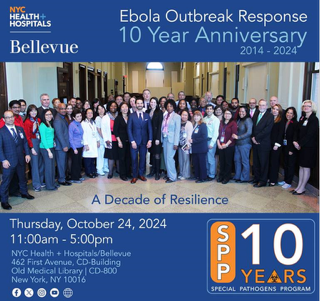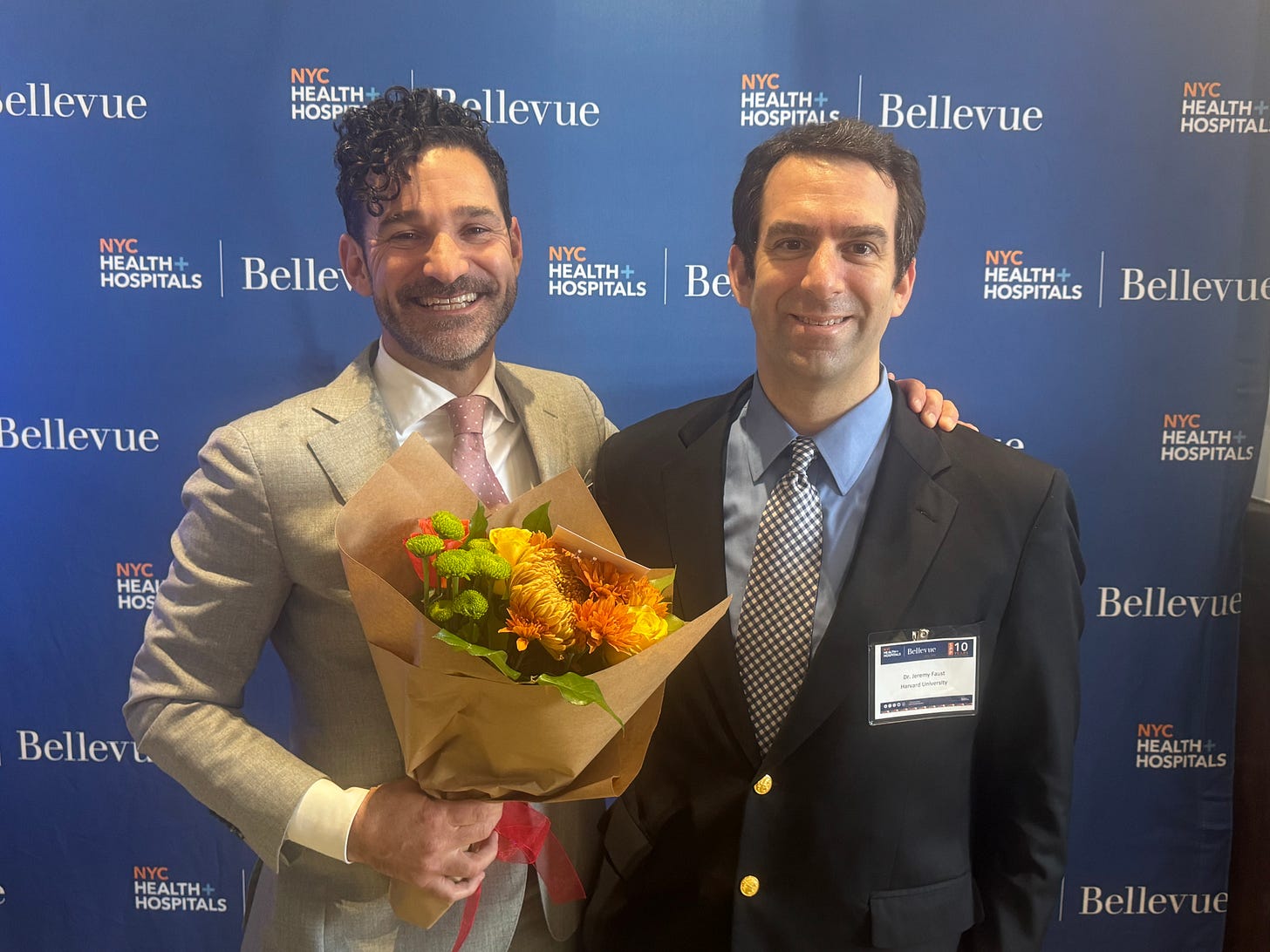CDC recommends 2nd Covid-19 vaccination for people ages 65+ or with immune compromise for 2024-2025 season.
That and other stories in "Five on Friday" for October 25, 2024...
Item 1: CDC recommends a 2nd dose of Covid-19 vaccine for all people over age 65, and some immunocompromised people.
The CDC’s Advisory Committee on Immunization Practices (ACIP) voted to recommend a second dose of the Covid-19 vaccine for the 2024-2025 season for all people ages 65 and older and those with moderate or severe immune compromise. The policy says that second doses can be given six months after the first. People who are moderately to severely immunocompromised can already receive additional doses of these vaccines as often as every two months (in consultation with their physicians), but the new recommendation canonizes that the minimum that this key group should receive is two doses during this particular season. There are also a variety of other recommendations, including those for people who have received the Novavax option. For everyone else, there are no changes.
The second dose recommendation only applies to the 2024-2025 season. We do not know whether this approach will become a routine recommendation. But the rationale makes a great deal of sense to me, based on modeling data published this year (which came to a similar conclusion as those my colleagues and I reached last year; Here’s the link to our preprint laying out the case, if you’re interested).
Item 2: Egypt declared malaria-free.
The WHO announced this week that Egypt is officially considered free of malaria. This is a superb achievement for a nation that has had documented cases of the disease dating back 6,000 years, and which had 3 million cases as recently as the 1940’s. The elimination of malaria was made possible by a suite of public health measures, from testing and reporting to access to prevention and treatments. Some of the credit also goes to macro-level planning—such as making sure that certain types of farms (which attract the disease-carrying mosquitoes) were not situated too close to human dwellings. It’s nice when public health planning works.
Meanwhile, there were 249 million cases of this disease in 2022 and over 600,000 deaths worldwide. So, the stakes couldn’t be higher. While Egypt has some natural advantages over other nations that remain far from reaching the milestone of eliminating the disease, these statistics and this success story demonstrate how crucial and worthwhile efforts to eliminate malaria are.
Item 3: GLP-1s added to stroke guidelines. Meanwhile, a manufacturer asks the FDA to crack down on alternative sources.
As many readers here know, the blockbuster GLP-1 drugs (like Ozempic, Wegovy, and Mounjaro) have made a big impact on diabetes, weight loss—and importantly—cardiovascular disease and mortality. This week, the American Heart Association made a major change to its guidelines on preventing strokes by recommending the use of GLP-1s for the specific purpose of reducing strokes. High-quality clinical trial data have already shown that for some patients, these drugs reduce strokes and heart attacks. But for this to have already made it into stroke guidelines is a welcome and important step in resetting our views around these drugs. In the right patients, these drugs are not “short cuts” for weight loss; they are life-savers. The question now is whether people with cardiovascular disease risks who are not obese will also have this benefit. It’s not known, but this certainly needs to be studied.
Meanwhile, Novo Nordisk, the maker of Ozempic and Wegovy is not thrilled that compounding pharmacies have been getting around patent restrictions and making GLP-1s independently and dispensing them to patients. This kind of thing is permitted when drugs are in shortage (which the GLP-1s have been). But Novo Nordisk has asked the FDA to step in, arguing that these drugs are essentially too complicated to be reliably synthesized in these local facilities. Of course, that’s not really Novo Nordisk’s problem, is it? (It certainly falls in the purview of the FDA, whose job includes protecting the public, however.) And certainly there are some compounding pharmacies that are more capable than others, so quality control is an issue. Also, while demand for these drugs has increased, shortages have actually abated somewhat as of late. There’s actually a whole kerfuffle at the FDA regarding which of these drugs are truly in shortage, as this affects whether compounding pharmacies can do any of this at all.
Long story short: People want GLP-1s. And with the new stroke prevention guidelines having been unveiled this week, demand is only going to increase.
Item 4: Ebola in New York City, ten years later.
I’m in New York for the 10-year anniversary of Bellevue Hospital’s care for my dear friend Dr. Craig Spencer. Craig had been treating Ebola patients in Guinea in October of 2014 while working for Doctors Without Borders. He returned to the US after treating hundreds of patients (and seeing things that few of us can imagine), and feeling fine. But when he developed a low-grade fever several days after landing home, he knew he had to get checked. Indeed, he had Ebola and was admitted to Bellevue Hospital in New York. Over the next couple of weeks, Craig became very ill. However, thanks to incredible work by Bellevue’s special pathogens response team and its intensive care unit, he completely recovered—and, I’m happy to say, has become a close friend of mine these last few years. (I flew to New York to surprise him for this event.)
Yesterday, Bellevue hosted an all-day program that highlighted both Bellevue’s special pathogens programs, and some of the national assets we are fortunate to have—many of which came out of the 2014 Ebola outbreak. (The “real” outbreaks were in West Africa; in the United States, there were 11 cases and 2 fatalities. The only two cases that were contracted in the US were by nurses taking care of a very sick man who eventually died. The nurses eventually recovered.)
We’ll hear more from Craig soon, so get your questions ready!
Item 5: Poll of the Week.
Here are the results from the last poll. Thanks for your votes! Y’all are awesome.
Item 5a: Poll of the Week for this week!
As we just learned, this week, the CDC announced it now recommends a 2nd Covid-19 shot for all individuals ages 65 and up and for those with moderate or severe immune compromise for the 2024-2025 season….
That’s it. Your “Friday Five!” Questions? Comments? Please chime in!
Feedback! Have any ideas for next week’s Poll of the Week? Any great articles you have read elsewhere that you want to share with the Inside Medicine community?










Frankly, I'll take whatever vaccines are offered to me. Much smarter people than I developed them, tested them, and believe they'd be beneficial to me? Bet. Also, the picture of you and your friend is lovely!
Am 65 with well controlled asthma and have been getting Covid vaccinations every 6 mths since they were developed. Have had Covid twice with good recoveries.